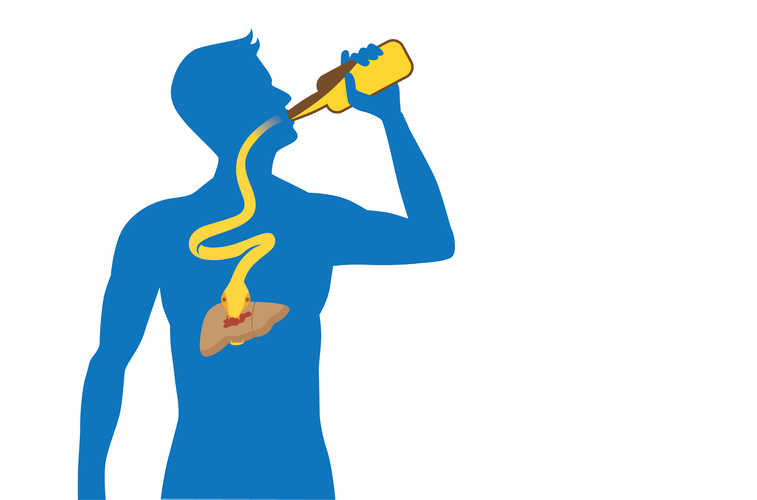When not drinking, you might begin to notice feelings of anxiety or other emotional distress, along with strong cravings for alcohol. Experiencing alcohol cravings may not automatically mean you have an AUD. All the same, it could be worth talking to a mental health professional — more on that below. All alcohol-dependent people face cravings in various forms; this is due to the need to maintain a certain level of alcohol in the blood. When you feel the need to drink to relax or to unwind with friends or even to reduce tension symptoms, then you are alcohol dependent. The reasonable thing to do would be to seek help on how to curb alcohol craving.
Other side effects may include headaches, nausea, vomiting, constipation, insomnia, pain, increased sweating, sleepiness, dizziness, coordination problems, physical dependence or abuse, and liver problems. For more information about Suboxone (buprenorphine/naloxone) see Suboxone.com, the full Prescribing Information, and Medication Guide, or talk to your healthcare provider. You are encouraged to report negative side effects of drugs to the FDA. At a glance, sobriety looks pretty on social media – and relatively simple to achieve. The posts are often accompanied by a white-toothed influencer who is standing on a mountain in a bikini. There is no fixed rule as to how long alcohol cravings will last.
How to manage alcohol cravings?
It is important to remember that remaining in recovery, however, is a life-long responsibility that requires a great deal of patience and focus. One of the most difficult challenges that many people face during recovery includes experiencing cravings for alcohol. Learning how to deal with these cravings is critical, as they can seemingly come out of nowhere and be triggered by factors as simple as being hungry, tired, or lonely. Alcohol recovery is a process—one that often involves setbacks. A drinking relapse doesn’t mean you’re a failure or that you’ll never be able to reach your goal.
Drugs to treat alcohol addiction are underused – The Economist
Drugs to treat alcohol addiction are underused.
Posted: Thu, 14 Sep 2023 07:00:00 GMT [source]
Whenever you get the idea to resume drinking, you can tell that idea to go to hell. Nipping temptation in the bud is easier than stopping it when it’s got a full head of steam. Pick a name for your urges that’s imaginative, strong, and meaningful to you. That little voice in your head that badgers https://ecosoberhouse.com/article/how-long-does-alcohol-stay-in-your-system-blood-and-urine/ and coaxes you. Some call it “The Inner Brat,” “The Alcohol Salesman,” “The Lobbyist,” “The Terrorist,” “The Whiner,” or just “The Enemy.” Pick a name that fits your experience with it. It was developed by Joseph Gerstein, M.D., a co-founder of SMART Recovery (and a good friend of mine).
Can medication help with alcohol cravings?
Think about these ebbs and flows as though they were waves in the ocean. The urge loses its grip on you when you realize it won’t last forever. Dr. Bowen’s MP3 files (link above) offer an excellent “urge surfing” meditation. On general principle, you don’t have to reason it out yet again.

If you or someone you love is struggling with an alcohol use disorder or cravings that are compromising recovery, reach out to our inpatient drug and alcohol rehab in Mississippi right now. We can connect you to one of our compassionate rehab admissions navigators who can answer all of your questions, how to stop alcohol cravings including those regarding rehab insurance coverage, paying for addiction treatment, and much more. Outpatient treatment and alcohol aftercare programs are both ideal options for those who are looking to strengthen their ability to effectively manage alcohol cravings, among many other things.
Get Treatment to Stop Alcohol Cravings at Gratitude Lodge
As previously mentioned, alcohol is an extremely addictive substance and is very hard to quit once you develop tolerance and dependence. Here’s some information to help you get ready for your appointment, and what to expect from your health care provider or mental health provider. Residential treatment programs typically include licensed alcohol and drug counselors, social workers, nurses, doctors, and others with expertise and experience in treating alcohol use disorder. You’re likely to start by seeing your primary health care provider.
- Belinda Gordon-Battle is a licensed clinical therapist and life consultant based in Miami while providing therapeutic services across the globe.
- During alcohol detox, medications can help reduce the intensity of cravings, while continuous care mitigates the likelihood of complications or relapse disrupting recovery.
- You’d get a bottle and keep the party of one going at home.
- The NIAAA offers a printable urge tracker and a worksheet for handling triggers.
- Before starting any complementary treatment, be sure to discuss it with a doctor to make sure it’s safe for you.
